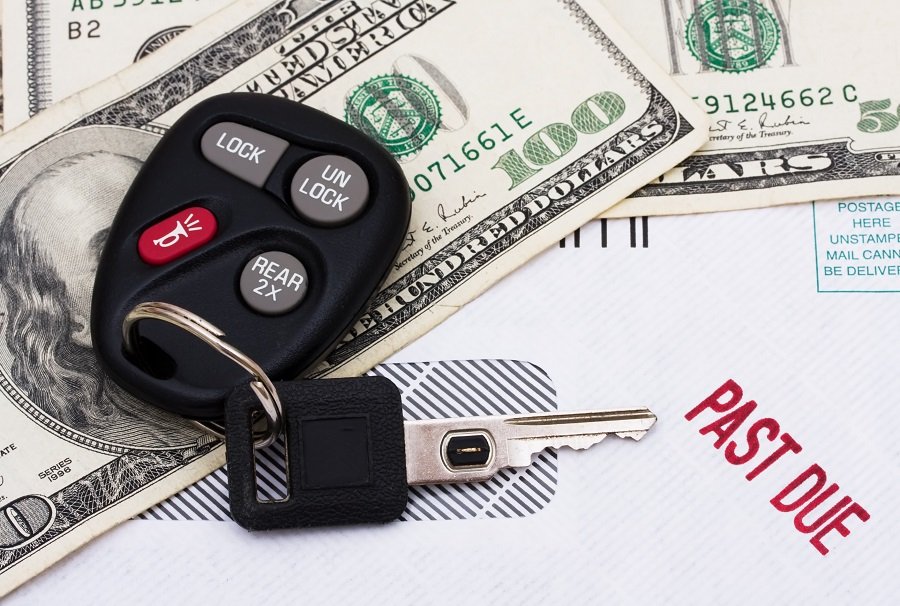How Much Should I Spend on a Car?

Table of Contents
How much you spend on a car has both a qualitative justification as well as a quantitative one. In other words, what and how you use the car matter just as much as how much it will set you back financially.
In this article, I will cover how to determine exactly how much you should pay for a car and what needs it will be checking off the list along the way. After all, a car is a depreciating asset and should be treated as something that won’t be around for the long haul.
Buying a Car is a Cash Flow Problem
 When you purchase a car, you are essentially adding a capability to your life. You are adding the ability for a person in your family to go somewhere quickly and hopefully safely. This is no different than when you buy an internet plan or pay for Netflix.
When you purchase a car, you are essentially adding a capability to your life. You are adding the ability for a person in your family to go somewhere quickly and hopefully safely. This is no different than when you buy an internet plan or pay for Netflix.
When you purchase a car there are a series of periodic expenses related to it. Mostly these expenses occur monthly. Thus, your ability to afford a car is a monthly cash flow problem combined with the initial lump sum purchase.
Keep in mind that I am alluding that there are serious monthly expenses even if you pay for the car outright. If you are a driver that must insure their car in Florida, you may be keenly aware that car insurance is almost more expensive than a monthly car loan payment.
Your monthly car expenses must be holistically accounted for. You must account for the total cost of ownership. Here are a few ancillary costs that you need to think about as monthly expenses:
- Car Loan / Lease Payment
- Car Insurance Payment
- Cost of Gas for a Month based on NEEDED Driving (to / from work and school)
- Cost of Maintenance (Oil Changes / Tires / Belts, etc.) per Mile
Thinking of your car expense as a monthly recurring expense is not new, however it may be an uncomfortable realization for those who intended to pay for the car in cash up front.
Should I Lease or Buy my Car?
 Plain and simple: if you are looking to live financially fruitful now and into the future then you should buy the car instead of lease it. Why? Because its cheaper. There are less fees.
Plain and simple: if you are looking to live financially fruitful now and into the future then you should buy the car instead of lease it. Why? Because its cheaper. There are less fees.
But the decision may be more complicated for some folks. Leasing a car often is cheaper monthly thus it may be more affordable for those on the lower end of the income spectrum… at least it appears that way.
When a dealership tries to sell you a lease, they limit how many miles you can drive on the vehicle. Additionally, with each payment you are not building any equity. When it comes to deciding to lease or buy a car it comes down to what your goals are.
If your goals are to always be driving a new(ish) vehicle and don’t care if you ever pay off your vehicle then a lease may be for you. However, if you see your vehicle as a way to get from point A to point B. Or if you are excited about the car being minimally impactful on your life then going for a car loan is the best option.
In my opinion, if you are looking to drive a car because it looks good and has all the bells and whistles then you are reading the wrong blog.
If you are thinking about leasing, then it would be best to take a step back and determine what your financial goals are. Does leasing a car meet those goals? Probably not.
How Much Should my Car Loan Be?
Preferably S0.
If you can save enough money to pay for your car ahead of time, then not taking a loan or a lease is best. Some will say, ‘Well I can get a 0% interest loan, isn’t it better to get a loan?’
The answer lies in our own psychology. Mathematically, it may make sense to take a loan out on a vehicle if the interest rate charged (as an APR) is less per year then you can earn risk free elsewhere.
However, our brains don’t work that way.
If you take out a loan on a vehicle it will work against you in 2 ways. One, you will have to think about the anxiety of having this debt at least monthly when you set your budget and make your monthly payment. Two, it will limit your ability to make other cash flow decisions in your life… like buying a house or increasing your savings for retirement.
But let’s be honest… not everyone can afford to pay cash for their car purchase.
Being even more honest, nobody needs a luxury car or a top end model. Buying a base model car and getting a loan on it may be a necessary course of action for many.
So how much is too much?
If you were buying a house the 28/36 Rule would come into play. For purchasing a car it might shed some light as well.
The rule states that you should spend no more than 28% of your gross (before tax) income on a home and 36% on all reoccurring debts combined. So, if you are buying a car the monthly payment needs to fit in that 28-36% buffer.
So, no more than 8% of your gross income when combined with all your non-household debts should be spent on a car. If you make $120,000 a year (or $10,000 a month) before taxes, you can safely afford a monthly payment of $800 if the sum of all your monthly debt obligations excluding your house is not greater than $800.
If you have another car that is $400 a month, then you can only afford a car that is $400 a month.
How Long Should my Car Loan Be?
Not to be irritating, but the length of your loan should be as short as possible. Suze Orman recommends a maximum of 36 months or 3 years. Dave Ramsey flat out recommends just buying a Junker car and having no loan at all.
I agree with 3 years. After 3 years most new car warranties are no longer in effect and if your loan is longer than 3 years you may end up with a broken car while still making payments. Additionally, a longer loan term will also likely increase the chance of being underwater during repayment.
Being underwater on your car loan means that you owe more than it is worth.
Since a vehicle is a depreciating asset the value of the vehicle goes down over time even if you don’t use it. If your loan payment is too long, it will go down in value faster than you are paying the loan down.
Should I buy GAP Insurance?
No.
If you find yourself being coaxed by the finance manager at the dealership to buy GAP insurance because he is saying you will be underwater (see above) then your loan repayment is too long, or you are paying too much for the car.
Additionally, if you don’t have enough money in your emergency fund to safely cover the difference between what you owe and what the car is worth then you have no business buying a new car. Instead, save up a few months’ worth of payments and buy a used car.
Needing to buy GAP insurance is an indicator that you are not on solid financial ground.
If it stresses you out when you consider what may happen if your brand-new car is wrecked shortly after driving it off the lot, then you need to take a step back and leave the dealership.
There are alternatives to buying a new car. Buy a used car! The uglier the better. Ugly used cars are cheaper than their better-looking brethren even when in the same mechanical condition.
What If I Pay in Cash?
 Excellent! You are paying for your vehicle in cash! There is no better way to pay for a vehicle. Once you purchase a car it is yours. Here are some major benefits of owning your own vehicle completely outright:
Excellent! You are paying for your vehicle in cash! There is no better way to pay for a vehicle. Once you purchase a car it is yours. Here are some major benefits of owning your own vehicle completely outright:
- You can never be ‘underwater.’
- The dealership can’t take the vehicle back.
- No GAP Insurance Temptations.
- No mileage limitations.
- No interest rates to shop around for.
- No credit score needed.
Paying for a vehicle in cash means that you have done your due diligence and have saved the required money. As long as you have an emergency fund, and your retirement savings is on track then buying a new car can definitely make sense when you pay up front…. and you understand it is not as good a decision as buying a used car.
Final Thoughts
Ideally, if you are in the market for a new car, you should be looking to pay off a car as quick as possible. In lieu of paying cash completely up front, choose a loan over a lease and make sure the loan repayment period does not exceed 3 years. Skip the GAP insurance and understand that your monthly payment shouldn’t exceed 8% of your pre-tax income.
Your ability to afford a car is dependent on both your need for one and your ability to meet the monthly obligations that go along with it. Even if you pay for a car in cash up front you will still have taxes, registration fees, insurance, gas, and maintenance that can set you back many thousands of dollars per year.
Keep in mind that used cars are usually the best way forward financially.
Used cars can help you avoid a lot of costs due to depreciation and can take advantage of getting a car in good mechanical condition that may not have been winning awards aesthetically when it was manufactured.
Whatever you decide, don’t skimp on your retirement savings… there’s no point in having a fancy car now to be forced to drive in to work during your golden years.
Do Your Research
I write this blog as way to express my opinion. Do your own research. Be careful what you read on the internet and always make sure you consult a financial expert that has your best interests at heart before doing anything with your hard-earned money.
Don’t agree with what I have written? Put it in the comments. I’m not always right and I’m definitely willing to make edits to this article based on reader comments and suggestions.
Guy Money
As a formally trained Data Scientist I find excitement in writing about Personal Finance and how to view it through a lens filtered by data. I am excited about helping others build financial moats while at the same time helping to make the world a more livable and friendly place.



